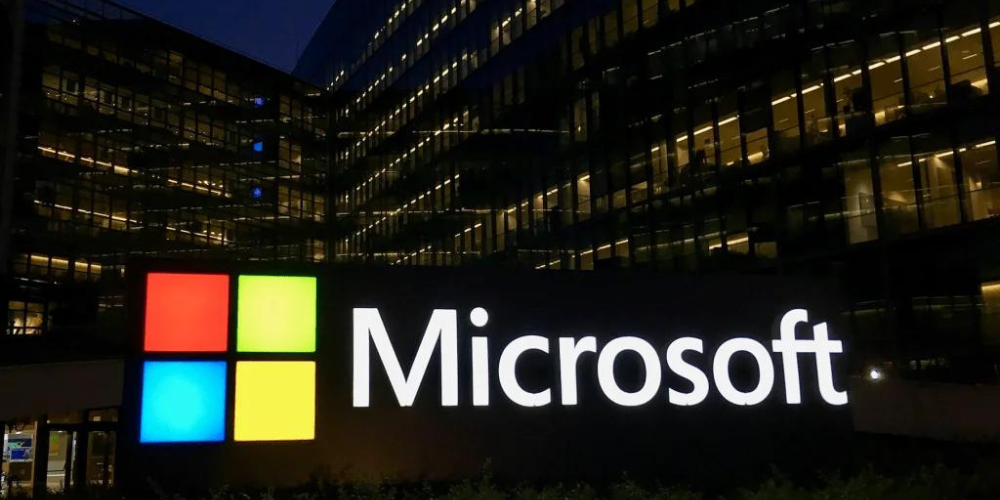Microsoft Considers Separating Teams From Office Package To Prevent EU Antitrust Penalties

Microsoft announced on Thursday its decision to separate its chat and video application, Teams, from its Office software and improve the compatibility of rival software with its own. This move is part of Microsoft’s efforts to avert a potential fine for antitrust infringement from the European Union (EU).
The decision follows the commencement of an investigation by the European Commission into Microsoft's bundling of Office and Teams, in the wake of a complaint by Salesforce-owned Slack in 2020.
Microsoft’s initial proposed changes failed to address EU Competition Regulator’s concerns. The regulator, on Thursday, acknowledged Microsoft’s announcement but declined to comment further.
Teams, introduced as a free addition to Office 365 in 2017, eventually replaced Skype for Business and gained traction during the pandemic due to its video conferencing features.
Announcing the changes in a blog post, Nanna-Louise Linde, Microsoft's Vice President for European Government Affairs, said they hoped the proactive changes would begin to address the EU's concerns in a significant way. The changes are aimed at ensuring customers can select a business suite without Teams at a lower cost, and to enhance interoperability between rival communication and collaboration solutions and Microsoft 365 and Office 365 suites.
From October 1, the changes will be implemented in Europe and Switzerland. The price of Office without Teams will be reduced by €2 per month or €24 per year for core enterprise customers. Teams can be purchased standalone and separately for €5 per month or €60 per year by new enterprise customers, while existing ones with suite containing Teams can retain it or switch to a suite without Teams.
To support customers and independent software vendors wanting to switch their data from Teams to other products, Microsoft plans to introduce new resources. A new method for integrating Office web apps within competitor's apps and services, as Teams currently does, will also be developed.
Microsoft, which previously faced €2.2 billion in EU antitrust fines for product bundling, is currently trying to adopt a more cooperative approach with regulators.
Latest posts
See more-
![The Last of Us Part II: In-Depth Character Analysis and Storyline Exploration]() Editor’s Choice
2024-08-11
The Last of Us Part II: In-Depth Character Analysis and Storyline Exploration
The Last of Us Part II is an action-adventure video game that has gained significant popularity since its inception. Developed with immense creative prowess by...
Editor’s Choice
2024-08-11
The Last of Us Part II: In-Depth Character Analysis and Storyline Exploration
The Last of Us Part II is an action-adventure video game that has gained significant popularity since its inception. Developed with immense creative prowess by...
-
![CrossCode Developer Announces Alabaster Dawn, Enters Early Access in Late 2025]() News
2024-08-12
CrossCode Developer Announces Alabaster Dawn, Enters Early Access in Late 2025
In 2021, Radical Fish Games initially introduced a new action RPG titled Project Terra. Now, they have officially named it Alabaster Dawn and announced that...
News
2024-08-12
CrossCode Developer Announces Alabaster Dawn, Enters Early Access in Late 2025
In 2021, Radical Fish Games initially introduced a new action RPG titled Project Terra. Now, they have officially named it Alabaster Dawn and announced that...
-
![Alabaster Dawn Planned to Have 30-60 Hours of Playtime, Demo Launching in Early 2025]() News
2024-08-13
Alabaster Dawn Planned to Have 30-60 Hours of Playtime, Demo Launching in Early 2025
Radical Fish Games has made an exciting announcement regarding their upcoming action RPG, Alabaster Dawn, which is set to enter early access in 2025. In...
News
2024-08-13
Alabaster Dawn Planned to Have 30-60 Hours of Playtime, Demo Launching in Early 2025
Radical Fish Games has made an exciting announcement regarding their upcoming action RPG, Alabaster Dawn, which is set to enter early access in 2025. In...
Latest Reviews
See more-
![]() Action
Cult of the Lamb
Action
Cult of the Lamb
-
![]() Action
WILD HEARTS™
Action
WILD HEARTS™
-
![]() Casual
Gacha Club
Casual
Gacha Club
-
![]() Action
Call of Duty®: Warzone™ 2.0
Action
Call of Duty®: Warzone™ 2.0
-
![]() Action
Gacha Cute
Action
Gacha Cute
-
![]() Action
Cuphead - The Delicious Last Course
Action
Cuphead - The Delicious Last Course










